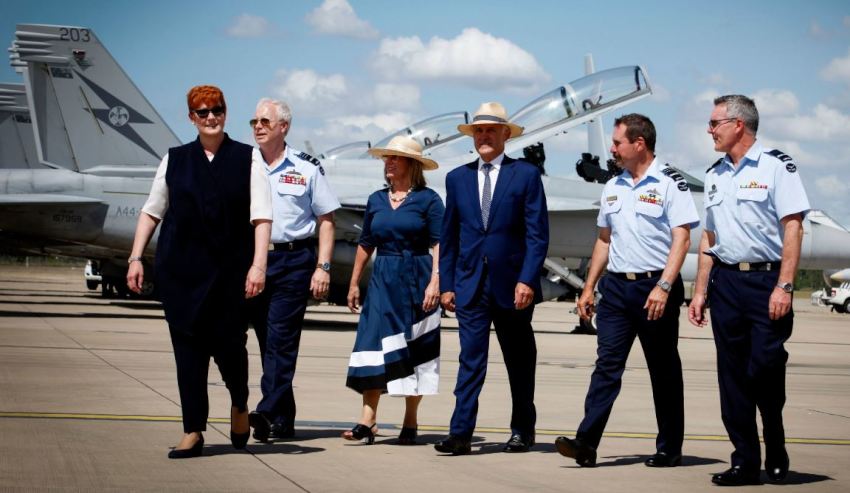The final contingent of the Royal Australian Air Force’s strike aircraft has returned home to RAAF Base Amberley, marking the end of Australia’s airstrike operations in Iraq and Syria.
To continue reading the rest of this article, please log in.
Create free account to get unlimited news articles and more!
Prime Minister Malcolm Turnbull, Minister for Defence Marise Payne, together with Chief of the Defence Force Air Chief Marshal Mark Binskin and Chief of Air Force Air Marshal Leo Davies, witnessed the arrival of six F/A-18F Super Hornet aircraft in Queensland.
The Australian Air Task Group was deployed on 21 September 2014 at short notice and commenced their first mission 14 days later. The Hornets have operated continuously for more than three years, flying more than 21,700 hours.
"The effort to establish the Air Task Group and then to sustain this mission was outstanding and RAAF’s men and women have again proven themselves to be a professional fighting force," Minister Payne said.
"These men and women have demonstrated the Australian Defence Force’s finest qualities in assisting our coalition partners in the fight to defeat Daesh.
"I also acknowledge the valuable support our Air Force families provided while our serving members were deployed so far from home."
Since 2014, more than 2,015 personnel deployed with, and in support of, the Air Task Group, providing security, logistics, engineering, health and combat support to enable safe aircraft operations.
Australia’s E-7A Wedgetail and KC-30A refuelling aircraft will continue to support counter-Daesh coalition operations. Australia will also continue its training mission, which involves around 300 personnel at Task Group Taji and around 80 personnel in a Special Operations Task Group.

 Login
Login






